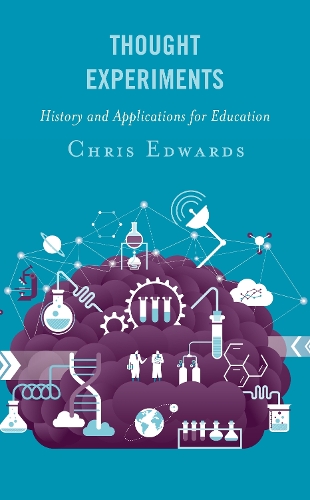
Thought Experiments: History and Applications for Education
(Paperback)
Publishing Details
Thought Experiments: History and Applications for Education
By (Author) Chris Edwards
Bloomsbury Publishing PLC
Rowman & Littlefield Publishers
14th April 2021
United States
Classifications
Professional and Scholarly
Non Fiction
Education / Educational sciences / Pedagogy
Decision theory: general
Philosophy
370.152
Physical Properties
Paperback
126
Width 154mm, Height 219mm, Spine 11mm
200g
Description
Thought experiments do not require a laboratory and need no funding, yet they are responsible for several major intellectual revolutions throughout history. Given their importance, and the way that they immediately engage students, it is surprising that thought experiments are not used more frequently as teaching tools in the academic disciplines. Thought Experiments: History and Applications for Education explains how thought experiments developed and shows how thought experiments can be applied to subjects as varied as theoretical physics, mathematics, politics, personal identity, and ethics. Teachers at all levels and in all disciplines will discover how to use thought experiments effectively in their own classrooms.
Reviews
In the history and philosophy of science fields one of the most underappreciated aspects of the scientific method is the thought experiment. Almost no one studies it, and yet all scientists conduct thought experiments even when they dont realize thats what theyre doing. Chris Edwards new book is the most important work on thought experiments ever written. Every historian and philosopher of science needs to read it, along with educators in general and scientists in particular. Plus, its a gripping story about what goes on inside peoples minds! -- Michael Shermer, publisher, Skeptic magazine; presidential fellow, Chapman University; author, "The Believing Brain", "The Moral Arc", "Heavens on Earth", and "Giving the Devil His Due"
Author Bio
Chris Edwards, Ed.D is the author of numerous books with Rowman & Littlefield, has presented his original connect-the-dots teaching method through the National Council for Social Studies, and is a frequent contributor to Skeptic magazine. He teaches AP world history and an English course on critical thinking at a public high school in the Midwest.
